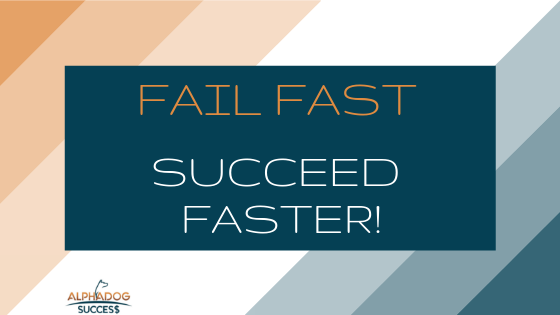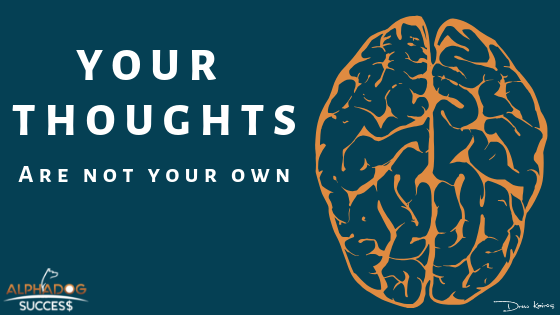Successful People Aim To Fail Quickly
You’re probably thinking to yourself, “Why in the world would somebody want to fail quickly?” You may have read the article title and did a double take….“Isn’t failure something we’re supposed to avoid?” “Isn’t it something we’re supposed to run away from?” “Isn’t it a mark of embarrassment or even humiliation?” Why in the world would successful people, of all people, aim to fail quickly? You should understand that successful people know failure is always a possibility. So, they don’t candy-coat it, try to avoid it, or make up excuses for it. They also don’t try to cover it up with rationalizations, excuses, or justifications. Instead, they look it straight in the eye and address it. Failure is inevitable, suffering is options. Maybe, it’s monetary…or maybe, it’s social like a loss of reputation. Whatever the case may be, failure conventionally means pain and/or suffering. Successful people realize that failure is inevitable so they look at what they stand to gain. They do a calculated risk-benefit analysis and if the analysis comes out right, and the project is worth taking on, they still keep looking at the possibility of failure to motivate them. These people know the difference between wanting to fail and getting ready for setbacks. Their mindset shifts to failing quickly. They want to know if this will not pan out. I want this to flame out quickly so I can pick myself up, dust myself off, and go on to the next opportunity. Quick failure means quick lessons. Don’t look at it as a judgment on your character as a human being. It is not some summation of your value as a person, nor does it define you. Instead, you learn what you need to learn like Thomas Edison who once used a hair from a man’s beard in his efforts to invent the light bulb. Obviously, that did not pan out, but that didn’t stop Edison from trying many times. You need to fail quickly so you can quickly determine that the road you’re on is not the right road. You can then shift to another road and then try the next one. Quick lessons mean a faster track to eventual success. That’s how successful people think. On the contrary, people who struggle for the rest of their lives experience failure and look at failure as something that defines them. What did they do wrong? They dwelled on it. Instead of a quick failure that yields important quick lessons, they dwell on the failure and the lessons they get are worse lessons because it’s all about them. They create stories in their head about things like: They’re not thinking intelligently They don’t have enough money People don’t like them. They can’t get ahead. They don’t have enough time to get things done. They’re trapped in their life with all these ‘toxic’ lessons Fail quickly and get the lesson quickly. Learn from it and apply this knowledge moving forward. This enables you to minimize the cost and the pain. Suffering will always be a part of the equation but it doesn’t mean that you have to maximize it. It doesn’t mean that you have to let it burn you and define you as a person. When you do that, you are only making success more elusive. In today’s business environment, where things are changing constantly, speed of execution is a lot more important than perfect execution. While you’re trying to perfect a certain solution or product, the situation might change, rendering your product or solution irrelevant. Make it “good enough,” publish it, improve it based on market feedback, rinse and repeat. This approach creates success much faster. By failing, we are learning. By learning, I mean we see how best to adapt to the environment and respond by adjusting our behavior incrementally but continually. This helps build momentum internally and externally. This also creates better quality solutions over time. If you’re holding on to an idea, product, service, in fear of rejection or failure – what are you waiting for? ~Wishing you success!
Successful People Aim To Fail Quickly Read More »











